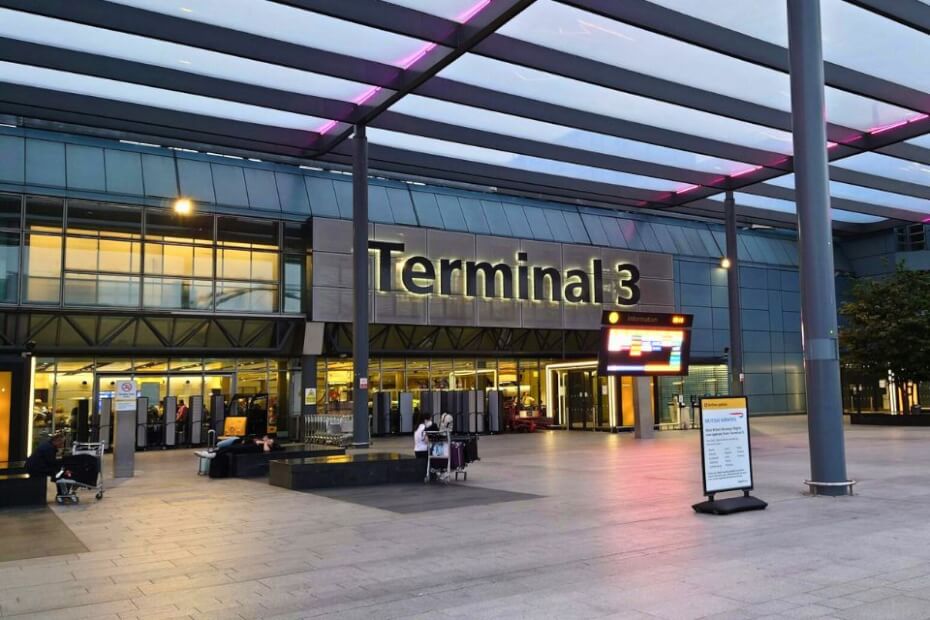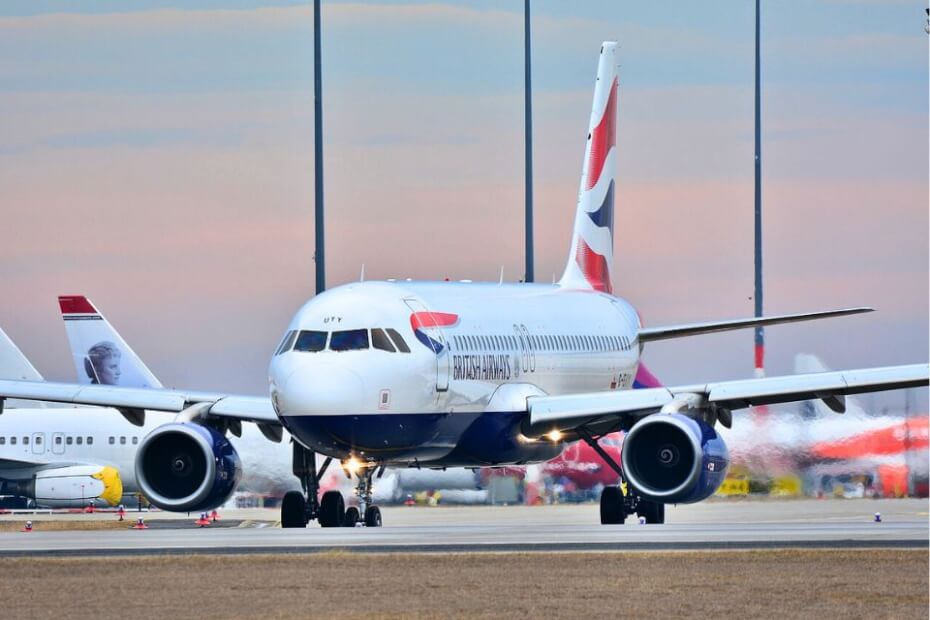
Heathrow Airport, one of the world’s busiest aviation hubs, is bracing for significant financial losses in the coming years.
The projected losses are due to the United Kingdom (UK) implementing its new Electronic Travel Authorization (ETA) scheme for non-visa visitors.
The scheme has already been implemented for citizens of the Gulf Cooperation Council (GCC). It is now set to be expanded to all non-visa visitors in 2025.
It will soon include UK-bound travelers from the United States (US), Canada, and Europe.
The new UK ETA scheme is designed to tighten border security. It allows the government to pre-screen low-risk travelers before they arrive.
However, all non-visa travelers must pay an online application fee and receive an ETA before their trip to the UK.
It will be required for all short trips up to six months, including tourism, family visits, permitted business activities, and short-course studies.
The ETA will also be mandatory for all non-visa nationals transiting through the UK, regardless of whether they are going through border control.
Already incurring some losses due to the ETA scheme for Gulf nationals, the widespread rollout could spell more trouble for Heathrow’s finances.
How the UK ETA scheme impacts Heathrow Airport
The UK’s new ETA scheme is poised to affect a substantial number of travelers, requiring a £10 application fee for online pre-travel authorization.
Airports and the airline industry have said that they support the scheme’s goal of enhancing border security.
However, airline industry experts warn that imposing it on transit passengers could drastically reduce Heathrow’s passenger numbers.
Heathrow is a central transit hub for international flights, with millions of passengers flying through the airport yearly.
The airport relies heavily on transit passengers, who make up about 30 percent of its total traffic.
Some flights, especially long-haul routes, depend on these travelers to remain profitable.
However, the new ETA requirement for transit passengers may lead travelers to choose other airports that don’t impose this restriction.
Passengers, particularly those using Heathrow as a transit point to other destinations, might opt for other European airports.
This includes Amsterdam Schiphol or Paris Charles de Gaulle, which do not have similar fees or authorization requirements for transiting travelers.
As Thomas Woldbye, CEO of Heathrow, pointed out, the ETA requirement for transit passengers “puts UK airports at a competitive disadvantage.”
Heathrow Airport’s projected losses due to the ETA scheme

The airport has already reported a significant decrease in passengers from the GCC countries where the ETA scheme has been implemented.
The ETA was initially rolled out for Qatari nationals in November 2023.
The rest of the GCC countries – Bahrain, Kuwait, Oman, Saudi Arabia, and the United Arab Emirates (UAE) – followed in February 2024.
According to Heathrow, about 19,000 fewer passengers traveled from Qatar in the first four months of the ETA rollout.
In August 2024, eight months after the ETA’s introduction, Heathrow saw a decline of 90,000 passengers from these countries.
With the ETA scheme to include European and US visitors in 2025, the airport fears that more travelers will avoid Heathrow altogether.
This will also affect major UK airlines such as British Airways and Virgin Atlantic. Both thrive from airside transit flights across Europe.
It will also impact Star Alliance, which uses Heathrow as a connecting airport for carriers such as Lufthansa, United, Air Canada, and Singapore Airlines.
This loss of passengers can jeopardize long-standing flight routes and reduce Heathrow’s overall appeal as an international hub.
According to The Independent‘s analysis, the world’s fourth busiest airport could lose up to four million passengers annually due to the ETA scheme.
Heathrow has repeatedly expressed concern that the drastic decline in passenger numbers could hurt the airport and the UK economy.
The Independent estimates that the drop in passenger numbers could result in a £2.5 billion to £5 billion annual loss.
This includes not just ticket sales but also significant spending at airport retailers and restaurants, as well as lost revenue for airlines.
ETA could hinder Heathrow AIrport’s robust performance
The broader rollout of the UK’s new ETA scheme also threatens to hinder Heathrow’s record growth this year.
The airport’s projected losses come at a time when it has been performing exceptionally well.
Heathrow Airport saw a significant increase in passenger traffic in July 2024, serving nearly eight million passengers.
It represents a 4.2 percent increase in passenger numbers compared to the same month last year.
This growth made Heathrow the busiest airport in Europe for the first half of 2024.
It surpassed major rivals like Amsterdam Schiphol, Frankfurt, and Paris Charles de Gaulle.
Heathrow also set new weekly records, with over 1.8 million passengers passing through the airport each week for three consecutive weeks.
Heathrow CEO Woldbye said the airport is on track to reach a new “never-before-seen” goal of serving eight million passengers in one month.
This surge in traffic was partly driven by strong demand for international travel following the COVID-19 pandemic.
With these positive results, Heathrow has urged the government to reconsider imposing the ETA scheme on transit passengers.
Woldbye believes the government could help maintain the airport’s momentum by exempting transit travelers from the ETA requirement.
This would allow Heathrow to remain competitive globally and benefit the industry and the UK economy.
UK Government’s stand on ETA for transit travelers

The former Conservative Government insisted that exempting transiting passengers from the ETA scheme could pose a major security risk.
It underlined that the ETA “stops people who may use connecting flights to avoid gaining permission to travel to the UK.”
The UK’s new Labor Government’s confirmation of the widespread rollout of the ETA scheme in 2025 shows its commitment to enhancing national security.
Still, Heathrow and other airline industry experts argue that the cost of the policy may outweigh its benefits.
This is evident particularly when it comes to the economic impact on the aviation sector.
In response to these concerns, Heathrow continues to lobby the government for an exemption for transit passengers.
This is evident particularly when it comes to the economic impact on the aviation sector.
In response to these concerns, Heathrow continues to lobby the government for an exemption for transit passengers.

